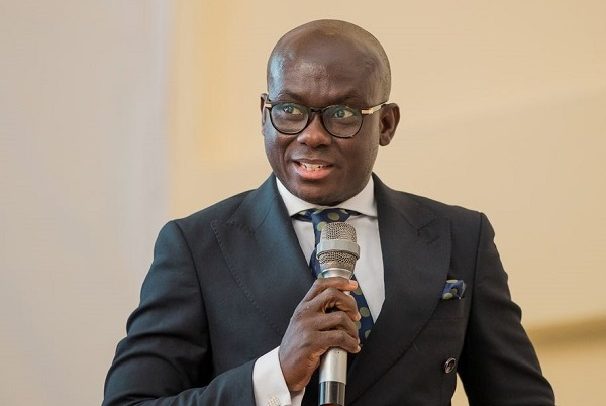Godfred Yeboah Dame
Attorney General and Minister for Justice, Godfred Yeboah Dame, has underscored the importance of digitalisation in the fight against corruption in Ghana.
According to him, digitised environment ultimately helps to eliminate and prevent corruption in various institutions and agencies.
Mr. Dame said Ghana recognises the centrality of access to information in the creation of accountability and integrity in society, and ultimately the elimination of corruption.
“Thus, underlying the Digitalisation Agenda of the government, which comprises a robust National Identification System, Digital Property Address System, Paperless Port Systems, E-Justice Systems, Pensions and Insurance data, a digitised Land Registry and Mobile Money Interoperability System, is the overarching objective to enhance transparency, accountability and efficiency in the public sector.
“In this regard, it is pertinent to note that institutions like the Passport Office, Ports and Harbours Authority, Registrar-General’s Department, National Health Insurance Service, Driver and Vehicle Licensing Authority, which hitherto were fertile grounds for corrupt activity, has been transformed considerably,” he said.
The UN Convention against Corruption remains the only legally binding universal anti-corruption instrument and has been signed by over one hundred and ninety (190) States Parties.
Mr. Dame said the Electronic Case Distribution System (ECDS) of the Judicial Service has been extended to cover superior and circuit courts.
In addition, Ghana has introduced integrated Criminal Justice Case Tracking System (CTS) to enable key actors in the justice delivery system to electronically access and track the various stages of criminal cases from the point of arrest, investigation, prosecution, conviction, rehabilitation and release.
Mr. Dame also outlined some measures taken by Ghana to fight corruption over the years.
He said since 2014 when Ghana adopted a National Anti-Corruption Action Plan (NACAP), its anti-corruption effort has been relatively better coordinated and systematic, resulting in significant progress.
He also revealed that Ghana is in the process of laying down the ‘Conduct of Public Officers Law’ which will address issues like financial portfolios held by public officers before assuming public office, links to family business, improper enrichment, care of public property, sexual harassment, among others.
“The law will provide a gamut of stringent administrative measures and sanctions to deal with violations of the law, ranging from a bar against holding public office for limited periods (up to forever, to penal measures),” he said.
The Attorney General added that Ghana has over the years enacted laws such at the Companies Act, passage of the Witness Protection Act, Whistleblower Act, establishment of the Office of the Special Prosecutor, among others to fight corruption in the country.
Global Efforts
Mr. Dame also called for commitment among nations in the fight against corruption on a global scale.
According to him, the integrity of the global effort to root out corruption is at risk from wrongdoers who exploit weaknesses in the systems to perpetrate financially motivated crime.
“The criminals exploit differences between countries to further their objectives, enrich their organisations, expand their power, and avoid detection or apprehension,” he said.
He added that they gain influence in government, politics and commerce through corrupt and illegitimate means.
By Gibril Abdul Razak


